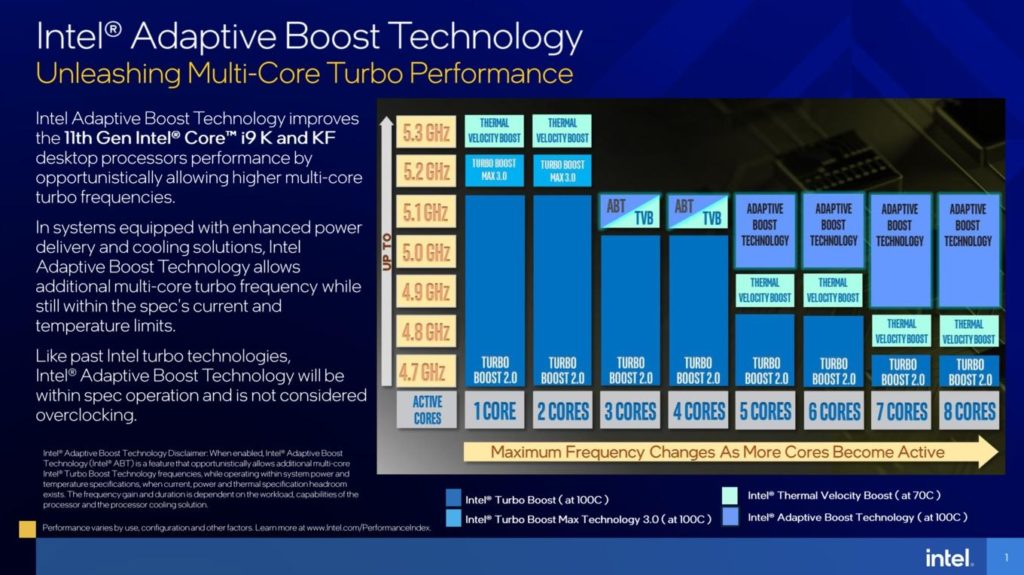As part of its new lineup of 11th Gen Core “Rocket Lake-S” processors, Intel has introduced a fourth boost technology called Adaptive Boost (ABT) to complement its pre-existing Turbo Boost 2.0, Turbo Boost Max 3.0, and Thermal Velocity Boost (TVB) technologies. The discovery was shared by HardwareLuxx editor Andreas Schilling today, who published an official slide from Intel explaining how its new Adaptive Boost Technology improves the Core i9-11900K and Core i9-11900KF SKUs by opportunistically allowing higher multi-core turbo frequencies based on a system’s power delivery and cooling solutions. This technology is exclusive to Intel’s Core i9-11900K and Core i9-11900KF processors.
“At a processor temperature of less than 70°C, these achieve a Thermal Velocity Boost of 5.3 GHz on two cores,” Schilling explained. “5.2 GHz without TVB and with Turbo Boost 3.0. If more than two cores are working, a maximum of 5.1 GHz is possible, but so far only for up to four cores via TVB.”
“This is where the Adaptive Boost comes into play: If the power supply and cooling are used, all eight cores work at 5.1 GHz. For up to four cores, the level of the TVB is still there, but for more than four cores the up to 5.1 GHz far exceeds the previous specification of 4.9 or 4.8 GHz.”
Like its other turbo technologies, Intel clarified that Adaptive Boost Technology operates within spec and isn’t considered a form of overclocking. Various motherboard manufacturers have reportedly released BIOS and microcode updates that enable Adaptive Boost for Intel’s Core i9-11900K and Core i9-11900KF processors already.


